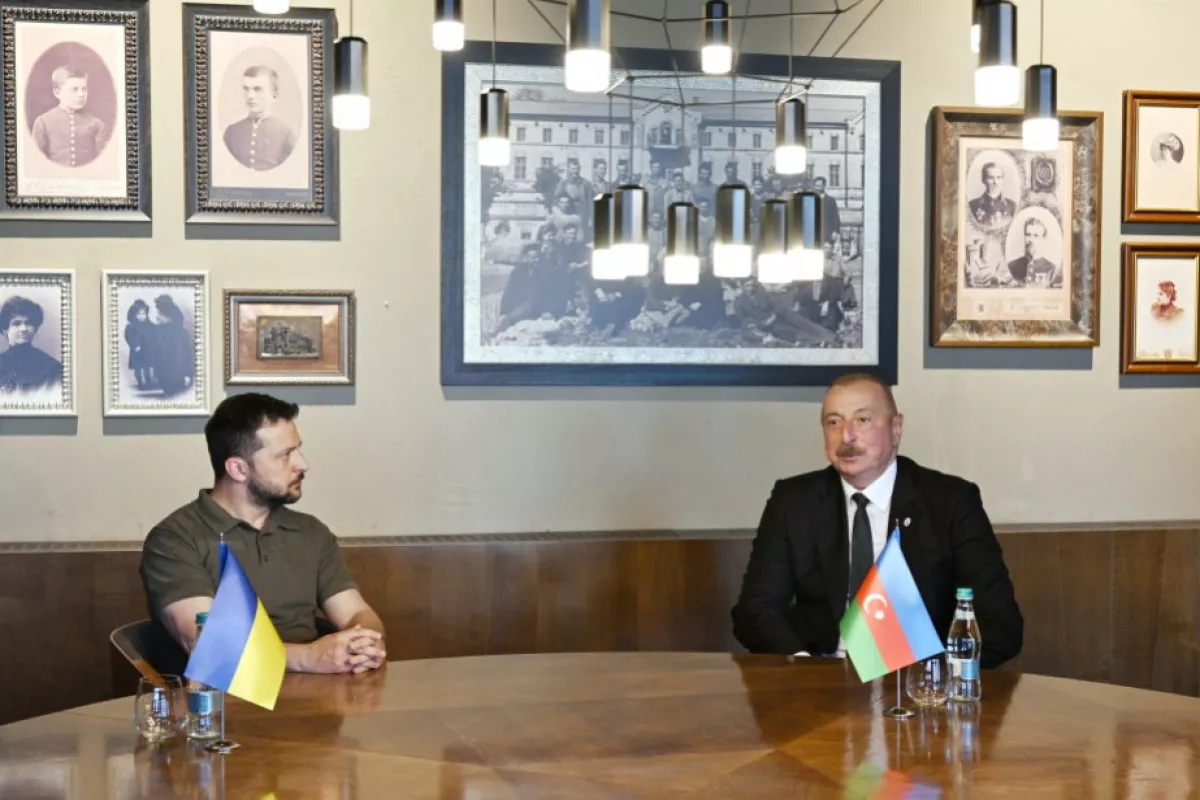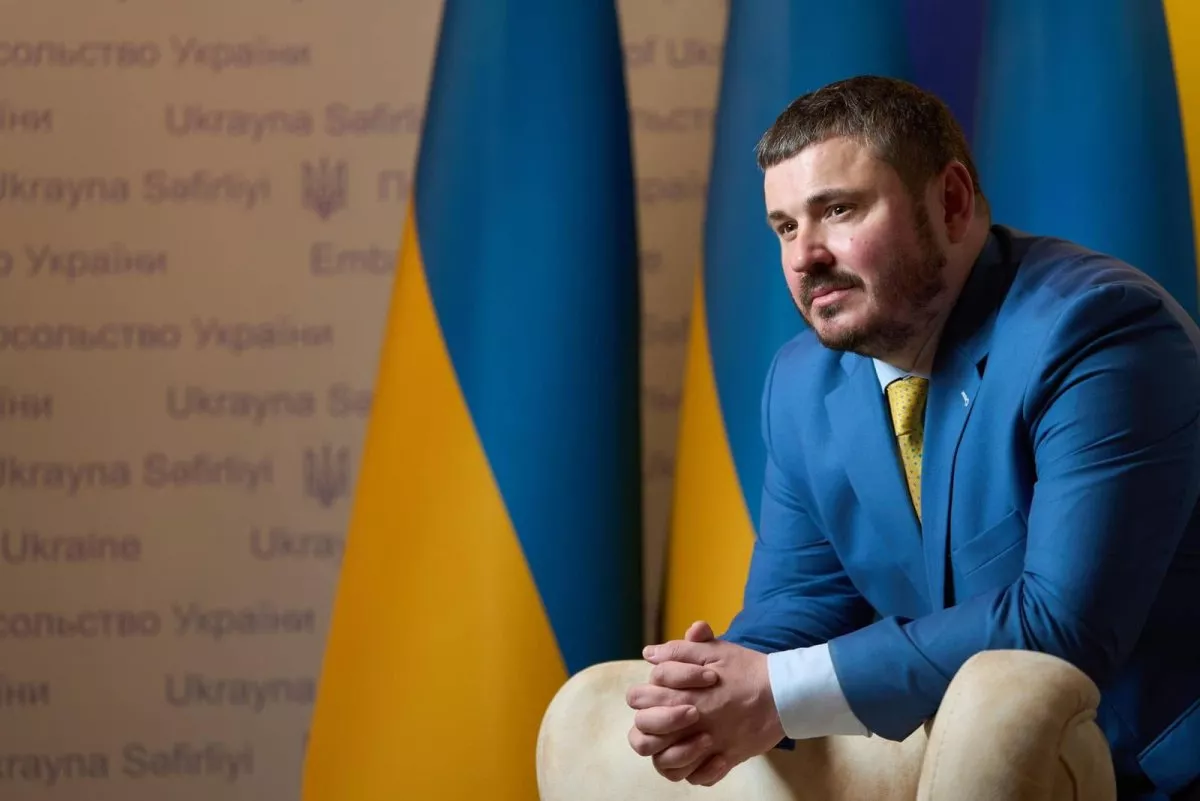Too precise a “coincidence” Kyiv has spoken — but why now?
In international politics, some events unfold as scheduled, others happen unexpectedly. Yet there are moments whose true significance only becomes clear against a wider backdrop—whether temporal, political, or emotional. At times, silence can speak louder than words, and a subtle gesture can convey far more than an official statement. It is precisely in these moments that rushing to conclusions should be avoided; instead, the fact itself should be carefully noted.
The phone call between Ukrainian President Volodymyr Zelenskyy and Azerbaijani leader Ilham Aliyev, held just a day earlier, was polite and courteous. From Kyiv’s side came condolences, expressions of gratitude, and reaffirmations of mutual support for sovereignty. Everything was conducted at the appropriate level and in the customary tone of official diplomatic exchanges.

But in such conversations, it’s often not just the words that matter — the timing can be just as significant. When viewed not as an isolated exchange but as part of a broader context, this phone call takes on added nuance — subtle yet unmistakable. Not loud enough to be declared openly, but clear to those who listen for the subtext.
The underlying message is hard to miss: in recent days, tensions between Baku and Moscow have sharply escalated — and this has not gone unnoticed in other capitals. Against this backdrop, the shift in tone from Kyiv has been particularly striking — echoed as well in several European capitals that had previously chosen to stay on the sidelines. Where cautious distance once prevailed, a sudden interest has emerged — expressed through informal signals, editorial suggestions, and, in some cases, public statements whose tone marks a clear departure from earlier restraint.
At first glance, these gestures may appear to be simple acts of solidarity and sensitivity — and to some extent, they are. But the context in which they occur is too layered, too politically charged, to be read merely as standard diplomatic courtesies.
It is precisely these nuances that are especially important to understand today — calmly, without rushed judgments, but with a clear grasp of what is happening.
Too many things have coincided to be mere chance. Too many voices have spoken — and too timely — from those who previously preferred silence or evasive language.
Neither before nor after the Second Karabakh War — neither in Kyiv nor in Brussels — was there much urgency in offering clear statements. Acknowledging the fact of Azerbaijan’s territorial occupation, as well as the tragic consequences, including the ethnic cleansing of its people, was often avoided through cautious silence or vague declarations.
In September 2022, amid yet another flare-up, Ukrainian media frequently reproduced the Armenian narrative: outlets like Focus.ua ran headlines such as “Azerbaijan Attacked Armenia,” while Channel 24 posed questions to experts strictly within that framing. And there are dozens of such examples. Yes, all of this does not amount to an official state position per se, but it serves as a marker of the broader context — one in which restraint often overshadows principle. In Baku, this was received calmly — without reproach, but also without illusions: when it comes to fundamental matters, one must rely only on oneself.

And now, amid a flare-up in relations with Russia, the tone has noticeably shifted — both at the official level and in Ukrainian media. Ukraine’s ambassador to Azerbaijan, Mr. Husyev, has been actively circulating texts to Azerbaijani newsrooms, filled with declarations of support — while carefully embedding openly anti-Russian rhetoric within them.
Official Kyiv appears to be trying to position itself within the shifting political landscape around Azerbaijan — presenting itself as an ally, a partner, a party capable of speaking in unison. But diplomacy is not theatre, where a change of scenery allows former roles to be forgotten. Memory is a stubborn thing, especially in a region where every word — spoken or left unspoken — carries weight.
Azerbaijan does not need gestures of tact. Its position has long taken the shape of a steady course — independent, balanced, and free of illusions. We are capable of conducting foreign policy without populism, but with a clear understanding of national interests. We do not need the trappings of support — we need partners whose positions are not weathervanes, shifting with external pressure or momentary political winds. And if Ukraine truly sees itself as such a partner, then this should be made clear not only when interests happen to align — but also when speaking out is difficult.
Kyiv's position is understandable: in the context of an ongoing war and the constant threat from Russia, every country capable of reinforcing a symbolic coalition is seen as a valuable component in building strategic depth. But it is precisely for this reason that it is important to distinguish sincerity from calculation. Diplomatic investments made out of necessity quickly lose their value once that necessity disappears.
Azerbaijan is not a platform for others’ manoeuvres — and even less so a card in someone else’s game. Yes, we see that in recent times, certain actions from the Russian side can hardly be interpreted as anything but provocative — actions that have already had, and will undoubtedly continue to have, serious consequences. But that does not mean Baku is ready to rush into the arms of any alternative.
We proceed from the principle of sovereign balance: we do not make a habit of drawing closer to those whose policies are built on weakening others. Our entire recent history has been a path we have walked on our own — relying only on ourselves, with no need for external crutches.
As before, we have recognised and continue to recognise the territorial integrity of states — regardless of current alliances or shifting political winds. Just as we have provided humanitarian aid to those in need, so we will continue to do — not out of calculation, but because responsible states act this way. This is where our consistency lies: not in rhetoric, but in deeds; not in the moment, but in a clear course.
And because of this, any diplomatic gesture — especially one made at such a sensitive time — is assessed by us not by its form, but by its substance. We hear not only what is said, but also what remains unsaid. We see not only the gesture, but the interest behind it. We do not rush to judgement. But we forget nothing.








